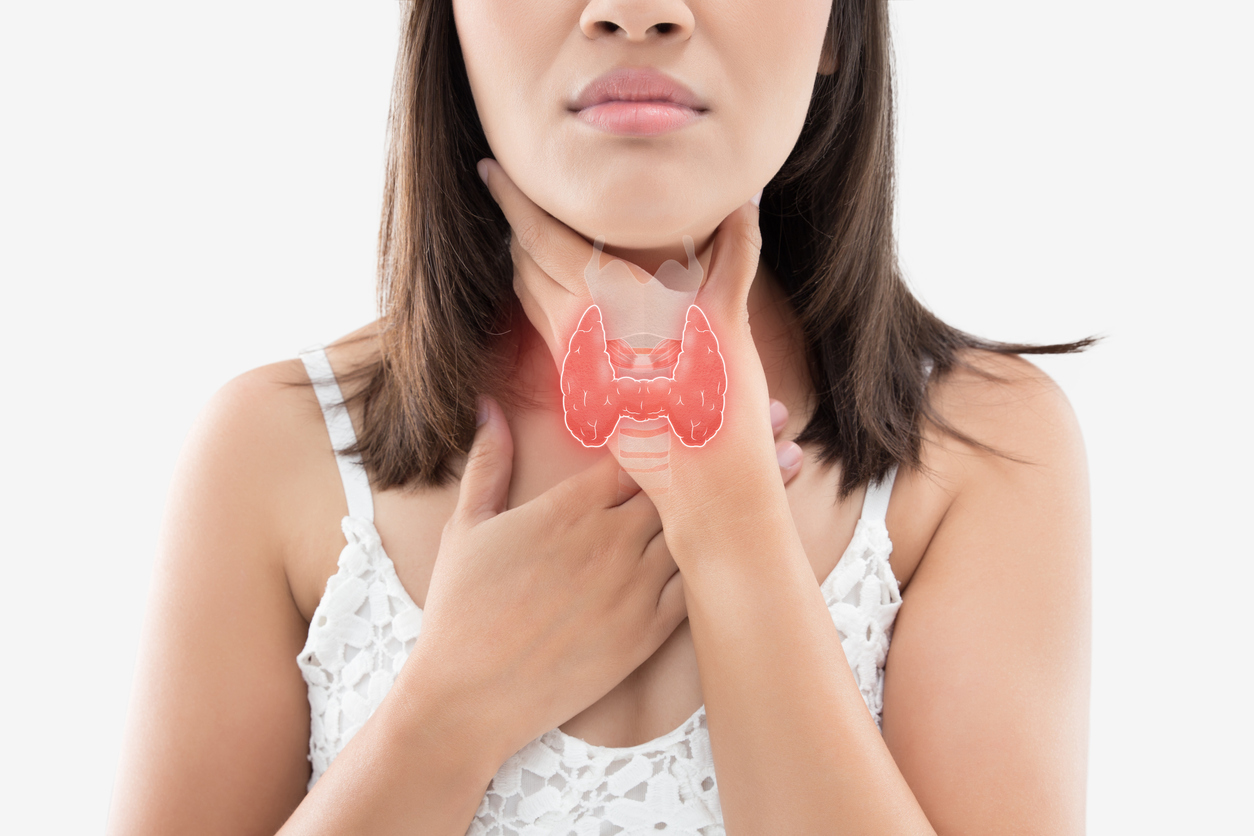Thyroid disorders
The thyroid gland is a butterfly-shaped gland situated in the front of the neck in front of the windpipe or trachea and releases thyroxine hormone, which controls metabolism in the body. It is said to be butterfly-shaped as the middle part is small, and the two sides look like wings that extend around the throat's side. The thyroid helps in producing hormones that control the vital functions of the body. Usually, the body releases the right amount of hormone. Still, when this balance is disturbed, that creates problems, and it becomes necessary to seek possibly the best thyroid treatment in Bhubaneshwar and that too on time.
The thyroid is a brownish color gland present in the trachea, which is rich in blood vessels. The thyroid helps in secreting various hormones, which are collectively called thyroid hormones. The main hormone that is secreted by the thyroid gland is thyroxine, which is also known as T4. Thyroid hormones help control the body's metabolism, prevent growth and development and body temperature. In infants and the growth years of the child, an adequate thyroid is important for brain development. Consult for the best thyroid treatment in Bhubaneshwar so they can treat your thyroid disease.
Causes of thyroid
There are two types of thyroid; one is hypothyroidism and hyperthyroidism. Hypothyroidism is a condition in which the crucial hormones from the thyroid gland are not produced enough. With the help of accurate tests, hypothyroidism is diagnosed. You can consult the thyroid doctor for the best thyroid treatment in Bhubaneshwar.
The other one is hyperthyroidism, which means the thyroid glands produce too much T3 and T4 hormones. Diagnosis of hyperthyroidism and treatment of its symptoms can help in reducing complications that are caused by hyperthyroidism.
Here are the causes of hypothyroidism:-
Autoimmune disorder: Autoimmune disorder is one of the common causes of hypothyroidism. The autoimmune condition known as Hashimoto's thyroiditis can be the reason for hypothyroidism. An autoimmune disease occurs when your body's immune system produces antibodies and attacks its tissues. Sometimes these antibodies attack the thyroid gland, which lowers the hormone production required for crucial function in the body.
Over response to hyperthyroidism treatment- Too much production of hormones from the thyroid gland leads to hyperthyroidism. It is usually treated with antithyroid medicine or radioactive iodine. The main role or function of this medicine is to get the thyroid function back to normal. However, sometimes these medicines backfire, and it leads to hypothyroidism.
Surgery of Thyroid: Surgery of a large portion of the thyroid gland can halt hormone production or diminish hormone production. In this case, the patient may require hormone injection for life.
Medications: Some medicines can lead to hypothyroidism. A drug that treats psychiatric disorders like lithium can lower the production of hormones from the thyroid gland.
Here are the causes of hyperthyroidism:-
Grave's disease: Grave's disease is an autoimmune disorder. In this condition, the thyroid gland becomes overactive and produces too much thyroxine hormone. In this, the thyroid gland gets enlarged. It is also called a diffuse toxic goiter.
Thyroiditis:Thyroiditis is a disorder that can be either not felt at all or can be very painful. In thyroiditis, the hormones released by the thyroid gland can be stored there. It lasts for a few weeks or even goes longer for months.
Nodules: The thyroid gland has nodules. When these nodules become overactive, it produces an excess of thyroid hormone. When a single nodule causes the disruption, it is called a toxic autonomous thyroid nodule.
Excessive iodine: Excess iodine in the body can lead to hyperthyroidism. When your body has much more iodine than it requires, then the thyroid secretes more hormone; this excessive production of the hormone is the cause of hyperthyroidism.
Symptoms of thyroid disease
The thyroid does have a lot of symptoms that you can experience if you have thyroid. Symptoms of thyroid are similar to growth stages of life and other medical conditions. You might get similar symptoms for other medical conditions, so it is better to visit the thyroid doctor for the best thyroid treatment in Bhubaneshwar.
The symptoms of thyroid can be divided into two distinct groups. One is for hyperthyroidism, and the other is hypothyroidism.
The symptoms of hyperthyroidism are:-
- Experiencing nervousness, anxiety, irritability. - Hyperthyroidism, which means excessive secretion of hormones from the thyroid gland, can lead to disruption of sleep, nervousness, and anxiety
- Enlarged thyroid gland or goiter - In hyperthyroidism, the size of adam’s apple increases.
- Irregular periods. - In women, the symptom of hyperthyroidism can be irregular menstrual cycles like a short or light menstrual cycle.
- Eye irritation or eye problems like vision problems - Puffy eyes or vision fluctuation can be a sign of thyroid.
- Other common symptoms are diarrhea, hair loss, muscle or tremor weakness, and increased sensitivity to heat.

